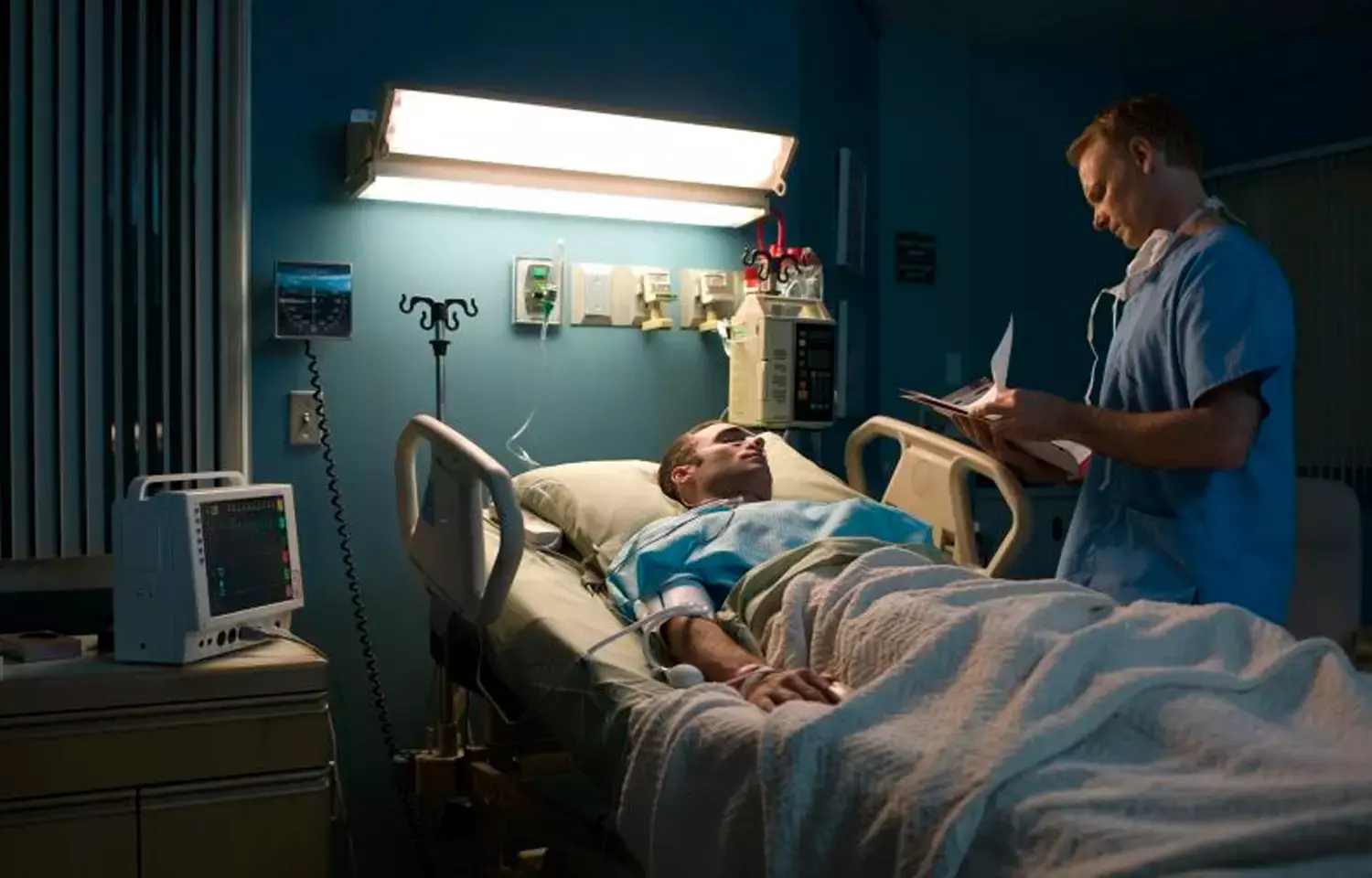- Home
- Medical news & Guidelines
- Anesthesiology
- Cardiology and CTVS
- Critical Care
- Dentistry
- Dermatology
- Diabetes and Endocrinology
- ENT
- Gastroenterology
- Medicine
- Nephrology
- Neurology
- Obstretics-Gynaecology
- Oncology
- Ophthalmology
- Orthopaedics
- Pediatrics-Neonatology
- Psychiatry
- Pulmonology
- Radiology
- Surgery
- Urology
- Laboratory Medicine
- Diet
- Nursing
- Paramedical
- Physiotherapy
- Health news
- Fact Check
- Bone Health Fact Check
- Brain Health Fact Check
- Cancer Related Fact Check
- Child Care Fact Check
- Dental and oral health fact check
- Diabetes and metabolic health fact check
- Diet and Nutrition Fact Check
- Eye and ENT Care Fact Check
- Fitness fact check
- Gut health fact check
- Heart health fact check
- Kidney health fact check
- Medical education fact check
- Men's health fact check
- Respiratory fact check
- Skin and hair care fact check
- Vaccine and Immunization fact check
- Women's health fact check
- AYUSH
- State News
- Andaman and Nicobar Islands
- Andhra Pradesh
- Arunachal Pradesh
- Assam
- Bihar
- Chandigarh
- Chattisgarh
- Dadra and Nagar Haveli
- Daman and Diu
- Delhi
- Goa
- Gujarat
- Haryana
- Himachal Pradesh
- Jammu & Kashmir
- Jharkhand
- Karnataka
- Kerala
- Ladakh
- Lakshadweep
- Madhya Pradesh
- Maharashtra
- Manipur
- Meghalaya
- Mizoram
- Nagaland
- Odisha
- Puducherry
- Punjab
- Rajasthan
- Sikkim
- Tamil Nadu
- Telangana
- Tripura
- Uttar Pradesh
- Uttrakhand
- West Bengal
- Medical Education
- Industry
Calprotectin levels may predict risk of recurrent Clostridioides difficile infection

Clostridioides difficile infection (CDI) has long been a leading cause of nosocomial diarrhea, posing a significant challenge to healthcare systems. Recurrent CDI (R-CDI), affecting 20%-30% of patients, extends hospital stays and increases costs. A recent study published in Frontiers in Cellular and Infection Microbiology suggests that the abundance of specific bacterial genera and fecal calprotectin levels could serve as vital biomarkers in identifying patients at risk of developing R-CDI, ultimately leading to better-tailored treatments and improved patient outcomes
The study, aimed at exploring the role of the microbiome and calprotectin levels as predictive biomarkers for R-CDI, included 200 patients with a primary episode of CDI. Researchers collected clinical data and fecal samples and performed microbiome analysis through 16S rRNA gene sequencing.
Of the 200 patients, 54 went on to develop R-CDI, while 146 did not. The analysis of 200 primary samples revealed distinct microbial patterns. Fusobacterium was found to increase in abundance in patients with recurrent disease, while Collinsella, Senegalimassilia, Prevotella, and Ruminococcus decreased. Additionally, elevated calprotectin levels were significantly correlated with R-CDI.
Building on these findings, the researchers constructed a risk index for R-CDI. This index factored in various prognostic elements, including age, sex, immunosuppression, toxin B amplification cycle, creatinine levels, and fecal calprotectin levels. The resulting model demonstrated an overall accuracy of 79%.
The significance of this research lies in its potential to identify early markers for R-CDI. By measuring calprotectin levels and examining the abundance of specific microbial genera like Fusobacterium and Prevotella during primary CDI episodes, healthcare providers may have a tool for predicting the risk of recurrent infection.
This predictive model could revolutionize the way CDI is managed. By identifying patients at higher risk for R-CDI at the initial CDI episode, healthcare professionals can better tailor their treatment strategies. This, in turn, may lead to more effective interventions, shorter hospital stays, and reduced healthcare costs.
Reference:
Vázquez-Cuesta, S., Lozano García, N., Fernández, A. I., Olmedo, M., Kestler, M., Alcalá, L., Marín, M., Bermejo, J., Bouza, E., & Reigadas, E. (2023). Microbiome profile and calprotectin levels as markers of risk of recurrent Clostridioides difficile infection. In Frontiers in Cellular and Infection Microbiology (Vol. 13). Frontiers Media SA. https://doi.org/10.3389/fcimb.2023.1237500
Neuroscience Masters graduate
Jacinthlyn Sylvia, a Neuroscience Master's graduate from Chennai has worked extensively in deciphering the neurobiology of cognition and motor control in aging. She also has spread-out exposure to Neurosurgery from her Bachelor’s. She is currently involved in active Neuro-Oncology research. She is an upcoming neuroscientist with a fiery passion for writing. Her news cover at Medical Dialogues feature recent discoveries and updates from the healthcare and biomedical research fields. She can be reached at editorial@medicaldialogues.in
Dr Kamal Kant Kohli-MBBS, DTCD- a chest specialist with more than 30 years of practice and a flair for writing clinical articles, Dr Kamal Kant Kohli joined Medical Dialogues as a Chief Editor of Medical News. Besides writing articles, as an editor, he proofreads and verifies all the medical content published on Medical Dialogues including those coming from journals, studies,medical conferences,guidelines etc. Email: drkohli@medicaldialogues.in. Contact no. 011-43720751


